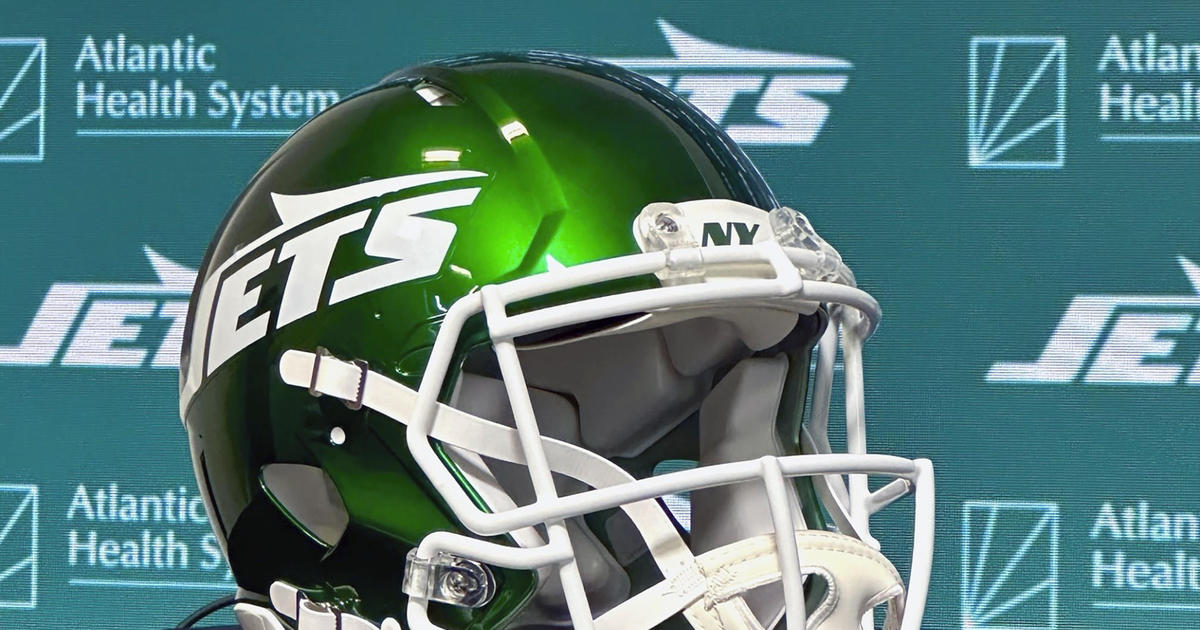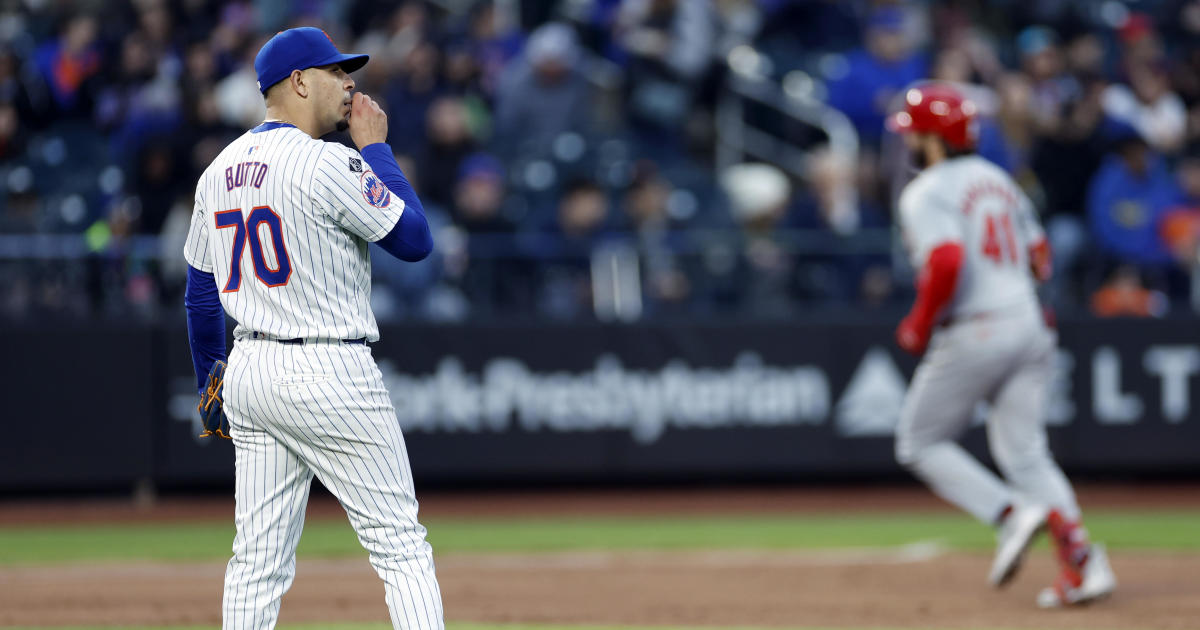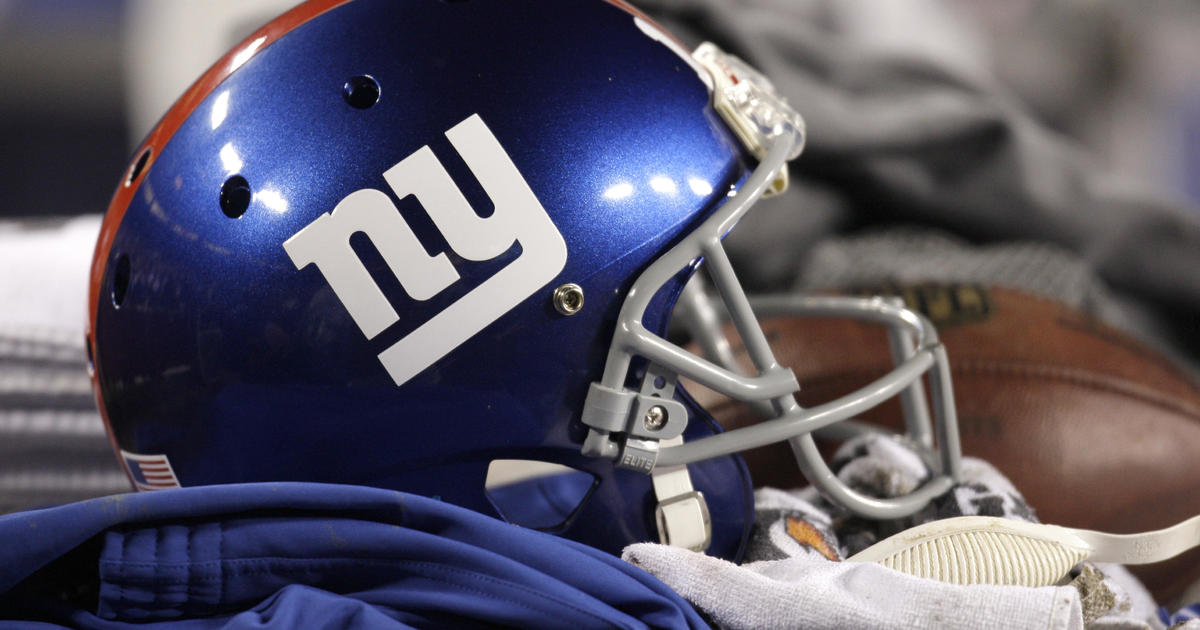Former Mets Catcher Gary Carter Dead At 57
NEW YORK (WFAN/AP) - Hall of Fame catcher Gary Carter, whose single for the New York Mets in the 1986 World Series touched off one of the most improbable rallies in baseball, died Thursday. He was 57.
Carter was diagnosed with a malignant brain tumor last May, two weeks after finishing his second season as coach at Palm Beach Atlantic University.
Keidel: Gary Carter Touches Home Plate | Time To Salute 'The Kid' Gary Carter
Coutinho: "The Kid" Will Remain In Our Hearts Forever | 25 Years Ago The Mets Owned The Baseball World
"I am deeply saddened to tell you all that my precious dad went to be with Jesus today at 4:10 p.m.," Carter's daughter Kimmy Bloemers wrote on the family website. "This is the most difficult thing I have ever had to write in my entire life but I wanted you all to know."
WCBS 880's Peter Haskell With Some Highlights From Carter's Career
Podcast
Carter was an 11-time All-Star and three-time Gold Glove winner. His bottom-of-the-10th single in Game 6 of the 1986 World Series helped the New York Mets mount a charge against the Boston Red Sox and eventually beat them.
LISTEN: WFAN's Mike Francesa Speaks With Ex-Met Darryl Strawberry about the life and career of Gary Carter
Carter played nearly two decades with the Mets, Montreal, San Francisco and the Los Angeles Dodgers. He led the Expos to their only playoff berth and was the first player enshrined in Cooperstown wearing an Expos cap.
LISTEN: 1010 WINS' Al Jones Reports
Podcast
Carter was known as much for his effervescent personality as his talents at the plate and behind it. He earned the nickname "Kid" as an eager teen in his first major league camp and the label stuck for the rest of his career, and beyond.
"An exuberant on-field general with a signature smile who was known for clutch hitting and rock-solid defense over 19 seasons," reads his Hall plaque.
The bronze plaque shows him with a toothy grin, too, forever the Kid.
"Gary was one of the happiest guys in the world every day," Mets teammate Mookie Wilson once said.
With curly, blond locks flaring out from beneath his helmet, and a rigid, upright batting stance, Carter was immediately recognizable at the plate.
He was especially enthused during the biggest moment of his career. The powerful Mets were down to their last chance in the '86 Series when Carter stepped up with two outs. No one was on base and New York was trailing Boston 5-3 in the bottom of the 10th inning in Game 6.
Carter said he had just one thought in mind: "I wasn't going to make the last out of the World Series."
True to his word, he delivered a clean single to left field off Red Sox reliever Calvin Schiraldi. Kevin Mitchell followed with a single and when Ray Knight also singled, Carter scampered home from second base.
As Carter crossed the plate, he clapped his hands, pointed at Wilson on deck and clapped again. Moments later, Bill Buckner's error scored Knight for an amazing 6-5 win. Carter rushed from the dugout to join the celebration at home plate, catcher's gear already on.
Overshadowed by the rally was the fact that Carter had tied the game with a sacrifice fly in the eighth. Then in Game 7, Carter drove in the tying run in the sixth inning, and the Mets went on to win their most recent championship.
Carter homered twice over the Green Monster at Fenway Park in Game 4 and totaled nine RBIs in that Series. Since then, only one player has gotten more in a World Series (Sandy Alomar Jr. had 10 for Cleveland in 1997).
Overall, Carter hit .262 with 324 home runs and 1,225 RBIs with the Expos, Mets, San Francisco and the Los Angeles Dodgers. He set the major league record for putouts by a catcher, a testament to his durability despite nine knee operations.
Carter twice was the MVP of the All-Star game. He won the award in 1981 by homering twice in baseball's first game after a players' strike that lasted two months. He remains the lone player to have a two-homer performance in an All-Star game and a World Series game.
He set the NL record for games caught, but spent his first full season in the majors primarily as Montreal's right fielder. His first All-Star appearance came that year, in 1975, as a defensive replacement in left field for Pete Rose.
Carter was recognized, too, for his contributions off the field when he was honored with the Roberto Clemente Award.
He hit his first major league homer in September 1974 off future Hall of Famer Steve Carlton as a 20-year-old rookie — Carter homered 11 times against the ace lefty, his top victim.
Carter spent his first 11 years with the Expos and was part of a solid core that put them into the 1981 playoffs. They beat the defending champion Philadelphia Phillies in a new first round created after the strike split the season into two halves, but lost to the Dodgers in the NL championship series.
A perennial fan favorite, Carter returned to Montreal in 1992 for one final season. His last swing was a memorable one — he hit an RBI double in the seventh inning at Olympic Stadium, left for a pinch-runner to a huge ovation from the home crowd and walked away after that 1-0 win over the Cubs.
Carter was elected to the Hall in 2003 on his sixth try. He had joked that he wanted his Cooperstown cap to be a half-and-halfer, split between the Expos and Mets. The Hall makes the ultimate call on the logo.
Carter pleased Canadian fans by delivering part of his induction speech in French. Born and raised in California, he took a Berlitz course to help him learn the language after the Expos drafted him.
The Expos traded him to the Mets after the 1984 season for Hubie Brooks, Mike Fitzgerald, Herm Winningham and Floyd Youmans. Carter turned out to be one of the last missing pieces on a New York team that already had the likes of Darryl Strawberry, Dwight Gooden and Keith Hernandez.
He made an immediate impression — it just took a little extra to get it right in his Mets debut in 1985. In the season opener at Shea Stadium, Carter took strike three, had a passed ball that gave St. Louis a run and watched Cardinals pitcher Joaquin Andujar steal a base against him.
But in the bottom of the 10th inning, Carter hit a home run that won the game and drew a standing ovation plus chants of "Gary! Gary! Gary!"
"What a way to start," Carter said with a grin afterward. "Hit by a pitch, strike out looking, a stolen base, a passed ball and then the home run."
"There's not enough words to describe what it feels like," he said. "I'll certainly remember this the rest of my life."
It wasn't the only time he bounced back from a rugged start. Slumping badly in the 1986 NL championship series, Carter hit a winning single in the bottom of the 12th to beat Houston in Game 5, putting the Mets within one win of the World Series.
A two-sport athlete as a boy, Carter won the 7-year-old national division of the NFL's first Punt, Pass & Kick skills competition in 1961. He was a pitcher and shortstop in Little League and switched to catching in high school after a scout suggested it was the fastest path to the big leagues, turning down a chance to play football at UCLA.
Carter stayed in baseball after his playing days ended. He became a broadcaster for the Florida Marlins, coached and managed for the Mets in the minors, managed two independent minor league teams and coached in college.
The only hint of negative publicity Carter drew came a few years ago when he appeared to be campaigning for the Mets' managing job though it was already filled.
Carter, however, always had a winning touch. At the ballpark or away, he greeted fans with a hearty handshake — many marveling at how his big right hand had swallowed up theirs.
After his diagnosis, the Mets began playing a highlight reel of Carter's accomplishments on the video board during games at Citi Field and posted this message: "Our thoughts are with you Gary. From your millions of fans and the New York Mets."
At the Hall ceremonies in July, new inductee Bert Blyleven mentioned Carter. "Gary, keep battling the way that you always have," he said to the crowd.
Hall of Famer Mike Schmidt said Carter continued to inspire him in later years. In a 2006 column for The Associated Press, the former Phillies star recalled the pure elation that enveloped Carter when he was voted into Cooperstown.
"No player ever appreciated that call to the extent he did. The joy it brought him, his family, and friends, especially me, was so real and pleasantly genuine, I ate it up and still do," Schmidt wrote.
"He does not take it for granted. He will wear his emotion, from this election, on his sleeve the rest of his life," he wrote. "His induction actually made me appreciate mine all the more."
Statements From The Mets
GENERAL MANAGER FRANK CASHEN: "The genesis of the trade was that we wanted to add a big bat to the lineup. He did that right away, but perhaps more importantly was the way he handled our young pitchers. He was the perfect guy for so many reasons."
MANAGER DAVEY JOHNSON: "Gary was a one-man scouting system. What people didn't know was that he kept an individual book on every batter in the National League. He was the ideal catcher for our young pitching staff."
DARRYL STRAWBERRY: "What he added to the team was character. His approach to the game was contagious. It spread to the rest of us. He helped each of us understand what it took to win."
DWIGHT GOODEN: "I relied on Gary for everything when I was on the mound including location, what pitch to throw and when. Even when I didn't have my best stuff, he found a way to get me through the game. He was just a warrior on the field."
WALLY BACKMAN: "He was like a big brother to me. I always went to him for advice. No matter what time of day it was, he always had time for you."
TIM TEUFEL: "The baseball community has lost a Hall of Fame player and a Hall of Fame person. He was a good man and will be missed terribly."
MOOKIE WILSON: "The one thing I remember about Gary was his smile. He loved life and loved to play the game of baseball."
TOM SEAVER: "No one loved the game of baseball more than Gary Carter. No one enjoyed playing the game of baseball more than Gary Carter. He wore his heart on his sleeve every inning he played. He gave you 110 percent and played the most grueling position on the field and that was something special."
Statement From The Family:
Hello to Team Carter,
It has been exactly 4 weeks since the last journal and that decision was made as a family. I am deeply saddened to tell you all that my precious dad went to be with Jesus today at 4:10 pm. This is the most difficult thing I have ever had to write in my entire life but I wanted you all to know.
He is in heaven and has reunited with his mom and dad. I believe with all my heart that dad had a STANDING OVATION as he walked through the gates of heaven to be with Jesus.
Thank you all for loving my dad and my entire family. I will still share with you all the last four weeks with my dad because they were incredibly special.
I am thankful that many years ago, my dad accepted Jesus Christ to be his personal Savior because I know He is now in NO pain and is the most beautiful angel. He is now in God's Hall of Fame.
We praise you, Jesus and thank you for giving my dad to us for 57 years.
...but those who hope in the LORD will renew their strength. They will soar on wings like eagles; they will run and not grow weary, they will walk and not be faint.
Isaiah 40:31
(TM and Copyright 2012 CBS Radio Inc. and its relevant subsidiaries. CBS RADIO and EYE Logo TM and Copyright 2011 CBS Broadcasting Inc. Used under license. All Rights Reserved. This material may not be published, broadcast, rewritten, or redistributed. The Associated Press contributed to this report.)



